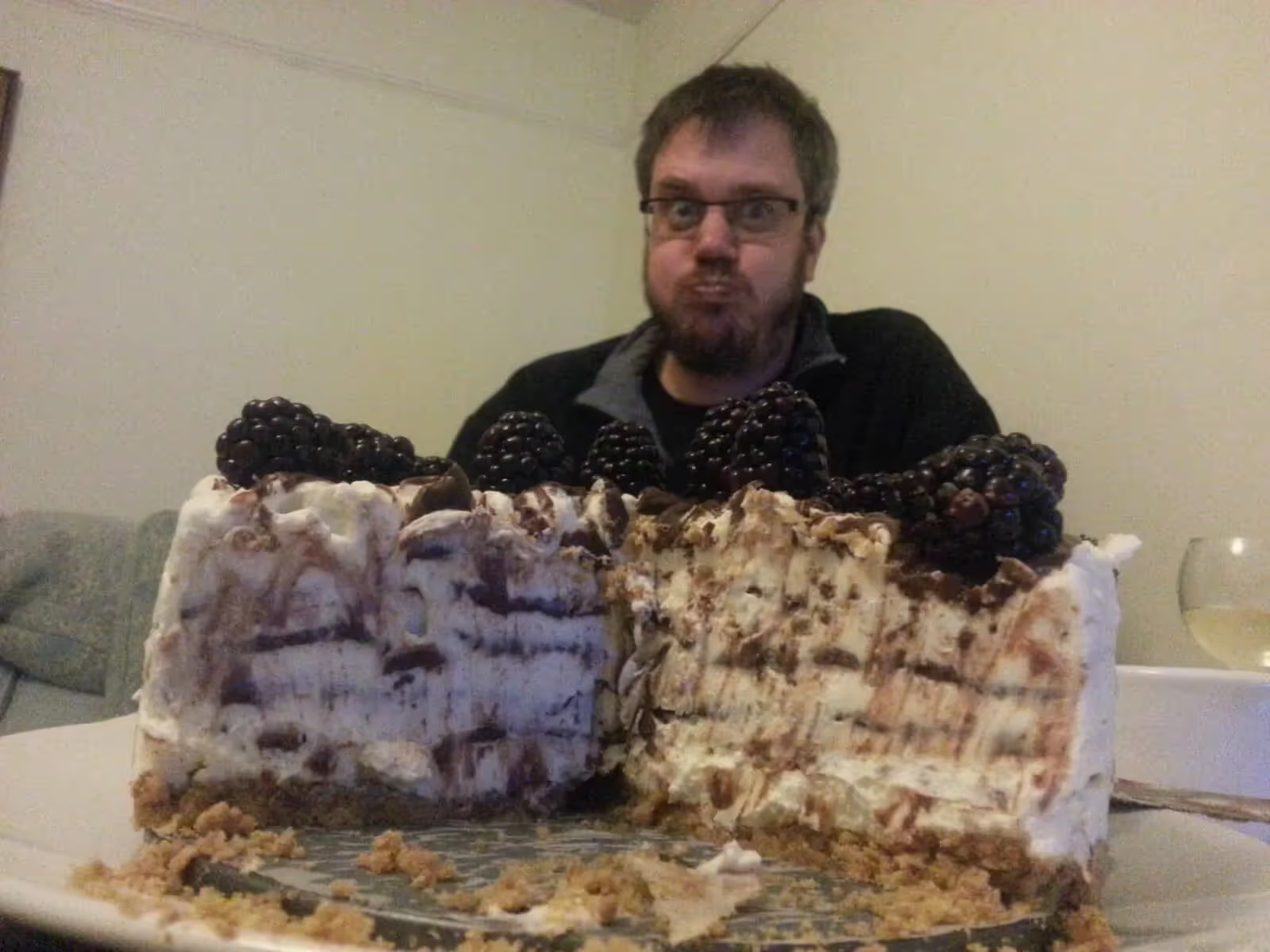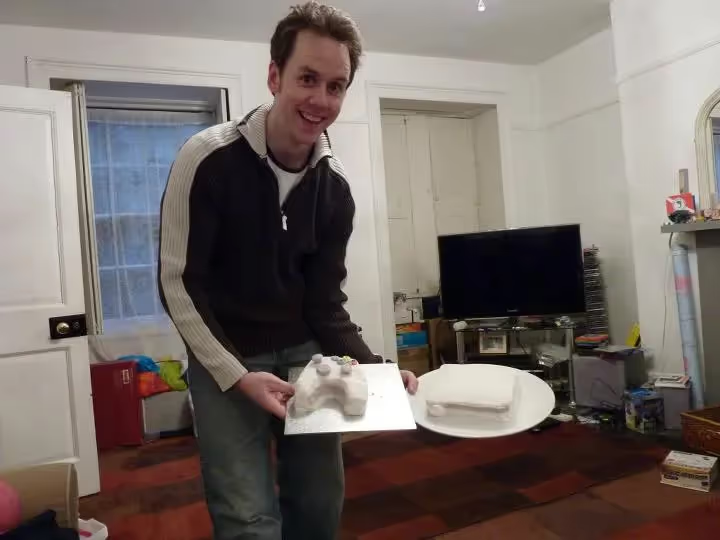Disjunction is a retro stealth game of investigation and silent kills, as you play a trio of characters who attempt to uncover a conspiracy centred around a drug called Shard, and the shady types producing it and profiting from it.
All of that is a bit of background really, just an excuse for you to get to the important business of infiltrating a load of offices and warehouses and taking out the variety of armed guards and robot sentries that stand in the way of the all important target, whether it's papers or a suspect, or even just a keycard to get to the next part of the level. As is usual in this sort of game, some doors to private areas are obviously too important to leave unlocked, and cannot be opened without keycards.
Clever evil organisation!
Luckily, these keycards are generally left lying around on desks, or even sometimes just in the middle of the floor.
Silly evil organisation!
I guess they just can't get the staff. Speaking of which, quite why an agency would hire about fifty armed guards for every floor of every building, I’m not sure. It can’t leave much profit margin, even when your trade is illicit drugs.

You have three characters with which to do your investigating and assassinating/whacking people on the back of the head, and they all have different tools and abilities. Well, slightly different. The first is a journalist who carries a smoke grenade, the second a cybernetically enhanced tough guy with a stun grenade, and the third a hacker with a pulse grenade. See? Completely different. OK, they do have other variations, but I think more could have been made of the idea of playing three different protagonists. Their lives intertwine as the game progresses, and that's a fun idea.
You have two meters: health and energy, the latter being used whenever you use one of your tools or abilities. They don't refill over time, only by picking up health and energy. I'm not sure why places in this sort of game always leave energy lying around the workplace, but I guess that constant pacing of preplanned guard routes gets you down eventually and you need a little pick-me-up. Random stimulants lying around must be a nice job perk when you work for drug manufacturers.
Bombs and grenades are fired in the sort of manner reminiscent of curling, by which I mean the Winter Olympic sport. You press R1 to throw it and it sort of slides its way along the screen in the direction you fire it. You press R1 again when you want it to go off. The smoke bomb is very useful if guards are standing too far from cover for you to sneak up on them, and it's fun to set off a smoke bomb, enveloping a guard that you can then go and deal with, before dragging his body away to avoid suspicion.
This does stretch the stealth idea a bit though, that these smoke bombs seem completely invisible to other guards who aren't caught up in the haze. It makes me laugh to see a guard, standing elsewhere in the same open space, stare blankly ahead as a smoke bomb goes off right in front of him, clearing a bit later to reveal that the guard — who he was probably having a bored chat with about what they're both going to be up to at the weekend — is no longer there, and yet he does nothing (though I imagine him tapping his foot or emitting a jaunty whistle).
Even when another smoke bomb detonates right by him, billowing up thick smoke all around him, he still stands there, before succumbing to your awesome stealthy use of near lethal force (definitely not lethal, mind, in case you get told off).
Their cones of vision are also very limited, and it’s somewhat jarring to be able to stand in full view right in front of someone, or to one side, but just outside the cone of vision and imagine that they just can’t see you at all. Sure, it’s a game, not real life, but it reduces the effectiveness of the stealth idea to be able to spend so much time in the open in the middle of a load of guards and still not be seen.

The game is sold on the idea that you can play the game how you want. Go in all guns blazing and leave a trail of dead bodies in your wake? Or sneak in, get the information, and sneak out again?
Apparently it's up to you, though I feel it would be pretty impossible to play as a pure action game. A single shot in a crowded room quite rightly brings everyone in the area running at you, and the tools at your disposal are really not suited to an out and out fire fight. There are loads of action games far better suited for that kind of play, whereas you’d be really fighting the system to do so in this game. Stealth is clearly the only valid approach here.
You are also told not to kill people, and so are encouraged to find a way to use non-lethal force. Luckily, when you knock people out by hitting them on the back of the head, they stay knocked out forever, and you are given non-lethal grenades that have exactly the same effect as lethal grenades would, by knocking out everyone in the vicinity forever as well. I can’t see any game difference between using a lethal weapon that immediately kills your opponent, and using a non-lethal weapon that immediately knocks out your opponent for as long as you are there. Like the idea of having different characters at your disposal, I feel more could have been made of the differences between using lethal force or not.
Unfortunately, making stealthy progress around these levels is let down by a very clumsy method of dealing with the standard problem that an isometric setting creates, where the scenery in the foreground covers up the play area behind it. While this game attempts to deal with it in the same way as most, by temporarily making the walls transparent whenever they get in the way of your movement, it seems very clumsy in its execution. Maybe this is because the retro graphics style is just far more limiting than the more polished graphics of other games that do the same thing (also, games like XCOM are turn-based, and so it's a lot easier to deal with it without being attacked at the same time), so it becomes very hard to know whether a wall is actually there or not.

What you think is a narrow passageway can actually suddenly expand into a much wider one when you move your character down just a touch. It's really quite disconcerting that a wall you thought you were hiding behind isn't actually there, so that when you move a little further to have a look round the edge of the wall as the guard approaches, the wall simply disappears and you are standing face to face with him.
For a game built so heavily on stealth, it's really pretty important to know where the walls are, and not have them disappear on you. I think a top-down approach, or even just "more" top down, would have reduced or eliminated this problem.
On top of that, these workplaces actually have live electric panels in the floor that can damage you massively if you walk over them while they are live, which are clearly just put there because to walk over them in stealth mode will have you moving too slowly, so you have to break out of stealth mode to move over them. Out of stealth mode, you move more quickly, but can be heard by guards and cannot see their cones of vision. As I don't really care how fast I'm moving (as long as I'm not running away) and it's more important to see those vision cones, there isn't really a reason to not be in stealth mode. Without these panels, I would click stealth mode on at the start of the mission and carry on until I finish. So these panels are there purely to get stubborn players like me to turn it off once in a while.
I would often then forget to snap back into it once I reached the next area of guards, and this could result in clumsily walking up behind one of them, them all hearing me, and then I would die and revert to the latest save point, which could be some time back. So the pads, as well as being unrealistic and daft, would result in me getting killed unnecessarily, and thus I came to hate them with a passion. But not in a "ah, those clever designers!" shaking my fist kind of way, more of a "what a ridiculous and outdated design move" kind of way.
Unfortunately, this is symbolic of the many little things in Disjunction that mount up, reducing the fun I was having to a negligible amount, the biggest of which being the save points.

Save points are randomly placed on the map, a square that lights up when you stand on it. When you die, you come back to this point, with the health and energy that you had at the time you saved. Therefore, you can save when you are on two squares of health and no energy, and then when you die, there you are, with two squares of health and no energy. And unlikely to ever progress further, so you have to restart the entire level.
Also, when you save, you cannot save on that point again, even if you go on to clear most of the rest of the level and find yourself there again. Nope, if the last guy in the level then kills you, back you go, and you have to clear out the entire level again. Save points seem pretty few and far between, and this leads to copious amounts of replaying areas you already cleared, which is the fastest way to me deciding to play something else that I can think of.
No game should make you replay more than a single room. It simply isn't fun, removes all sense of enjoyment and progress, and locks you into either a dreary sense of determination to not be beaten by a stupid game, or leads to broken controllers or a shutdown of a previously fun game, never to be played again.
This was the biggest sap of my desire to progress and get to the end, and there were definitely times I was playing the game because I had to write a review rather than because I was enjoying myself, and this moment came far earlier than it should have, and far earlier than I thought it would when I began to play the game.
That Disjunction was developed by a very small three man studio is impressive, and there is plenty they got right. The plot is decent for this sort of game, and offers more depth than most of its ilk. It attempts to give the characters backstory, and it’s a good idea to have three different people with intertwining plots.
The gameplay is fun as far as it goes, and offers moments of genuine enjoyment. I find the idea of this sort of stealth combat fun, sneaking in the shadows, and it offers some decent tools for feeling like a ninja badass. It’s definitely a welcome diversion for Metal Gear Solid fans.
Like so many games right now, Disjunction sets itself firmly in the retro mould, trying to make you feel like you are playing a PSX game or something. I'm beginning to tire of the retro idea, but the look of the game is perfectly serviceable here, minus the disappearing walls, and I have to say the music is excellent. It really fits the mood they are clearly going for, and is somewhat reminiscent of Blade Runner.
It has enough flaws that wore me down eventually, but it will find its fans, and I hope there is more to come from the studio behind it.
You can subscribe to Jump Chat Roll on your favourite podcast players including:
Let us know in the comments if you enjoyed this podcast, and if there are any topics you'd like to hear us tackle in future episodes!



